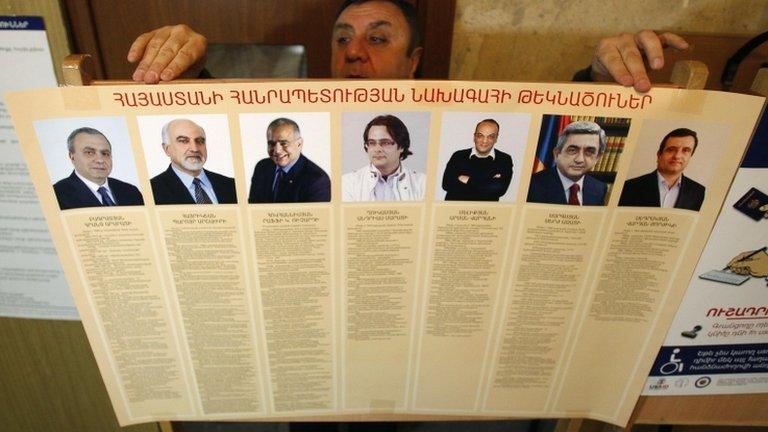Serzh Sargsyan: Protesters return after talks fail in Armenia
- Published
The BBC's Rayhan Demytrie meets protesters in Yerevan
Tens of thousands of opposition protesters have returned to the streets in Armenia despite the resignation of long-standing leader Serzh Sargsyan.
In a speech to demonstrators, opposition MP Nikol Pashinyan called on the entire government to resign.
Acting Prime Minister Karen Karapetyan earlier suggested the country hold fresh elections.
The demonstrations follow the collapse of talks between Mr Pashinyan and Mr Karapetyan, Mr Sargsyan's replacement.
The unrest began when Mr Sargsyan took up the post last week after serving as president for 10 years, angering many who saw it as a power grab.
Why do people object to Serzh Sargysan?
Demonstrators poured into the streets two weeks ago when the two-term president was picked to be the new prime minister.
Mr Sargysan, elected in 2008 and again in 2013 in votes marred by violence, had previously promised he would not seek the position.
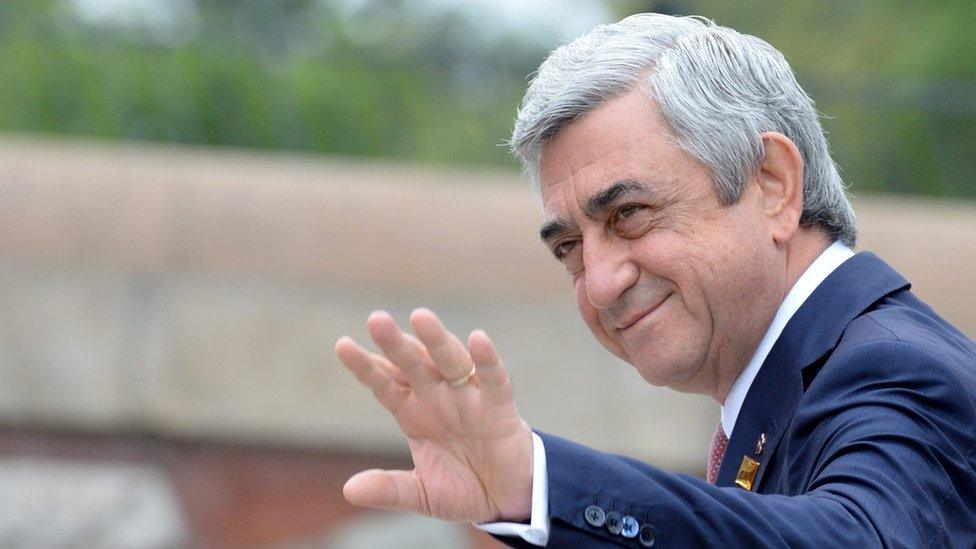
Mr Sargsyan has been criticised for his close ties to Russia
A 2015 referendum stripped political powers from the presidency and gave them to the prime minister.
Mr Sargsyan was accused by critics of being overly dependent on Russia and failing to address continuing tensions with Azerbaijan and Turkey, and widespread poverty at home.
He announced he would resign as prime minister on Monday in the face of the demonstrations.
What could come next?
On Wednesday, protesters marched through the capital Yerevan chanting "Nikol for prime minister", in support of the protest leader, after planned talks with acting Prime Minister Karen Karapetyan were cancelled amid disagreement over the format of the meeting.
Speaking at a rally later in the evening, Mr Pashinyan said "there is no government" in Armenia after Mr Sargsyan's resignation, and demanded the ruling party respect their "velvet revolution".
"We demand the unequivocal and unconditional capitulation of the Republican Party before the people," he said, in a speech broadcast live on YouTube, external.

Demanding fresh faces
Rayhan Demytrie, BBC News, Yerevan
By foot, in cars and on top of lorries, the protesters returned to the central square. This time many held large pictures of governing Republican Party officials, the faces crossed out in red. "Down with the Republicans!" they shouted.
The ousting of Serzh Sargsyan, who is also a Republican, was not enough. The Republican Party has dominated the Armenian parliament for more than 20 years. The Armenians wanted to see fresh elections and new faces in politics.
On Wednesday, three more political parties joined the protest movement. The government said it would announce its position on the current situation "soon".

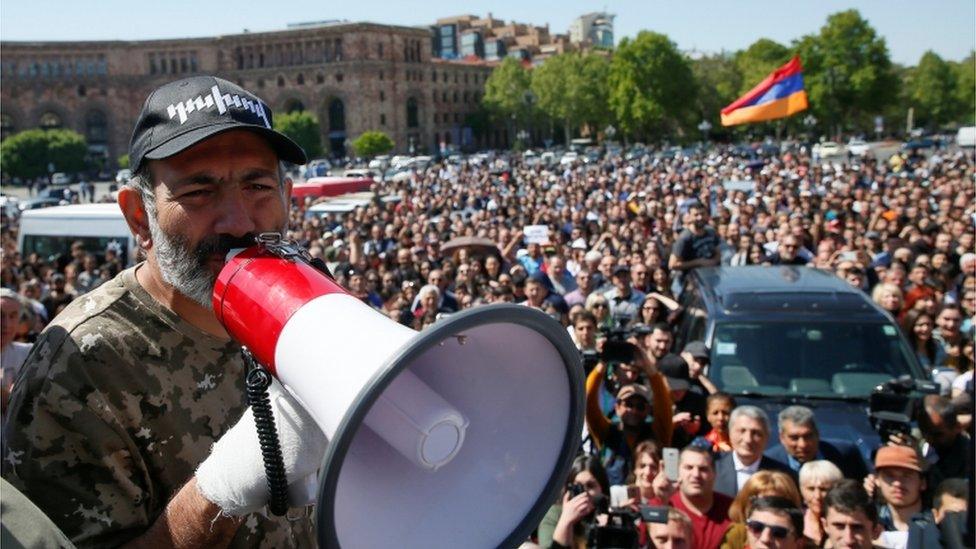
Mr Pashinyan has led the protests over the last two weeks
Mr Pashinyan also told gathered protesters to continue demonstrations on Thursday, and called on drivers to block the streets of the capital.
A Kremlin statement said that Russian President Vladimir Putin had spoken with President Armen Sarkissian earlier, and that the pair "underlined that all political forces in the country need to exercise restraint and responsibility".
Russia has two military bases in Armenia, which used to be part of the USSR.
Mr Pashinyan earlier told demonstrators he had met a Russian official and was reassured Russia "would not intervene in Armenia's internal affairs".
Mr Pashinyan's speech follows suggestions by Mr Karapetyan that the country hold fresh elections.
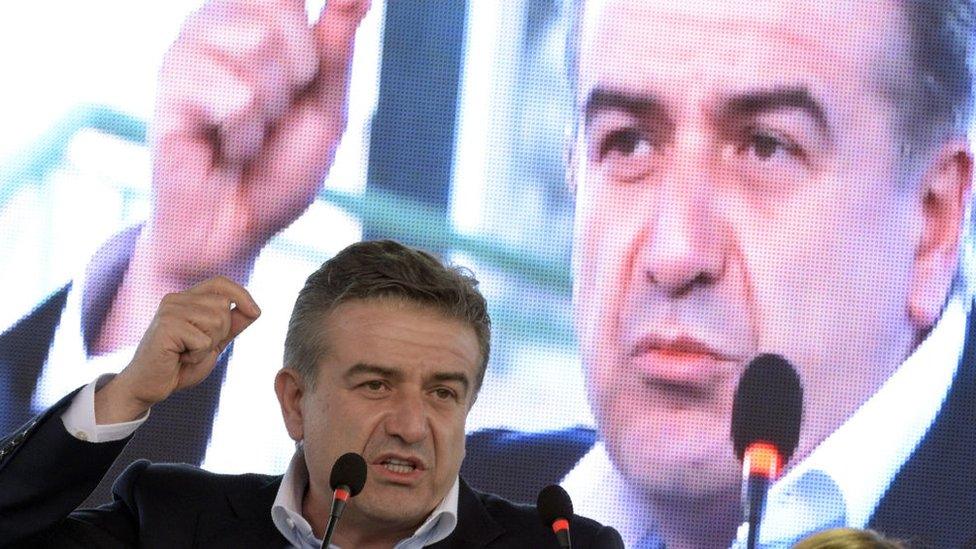
Karen Karapetyan became acting prime minister when Serzh Sargsyan resigned
At a news conference, the acting prime minister said the country should hold a ballot to test the popularity of the opposition leader.
"What does 'people's candidate' mean?" Mr Karapetyan said. "There are elections for that. If he is the people's choice, that means the people will choose him."
The new President, Armen Sarkissian, has said he will hold talks with political parties to try to resolve the crisis, warning the country faces "a serious trial".
- Published21 April 2018
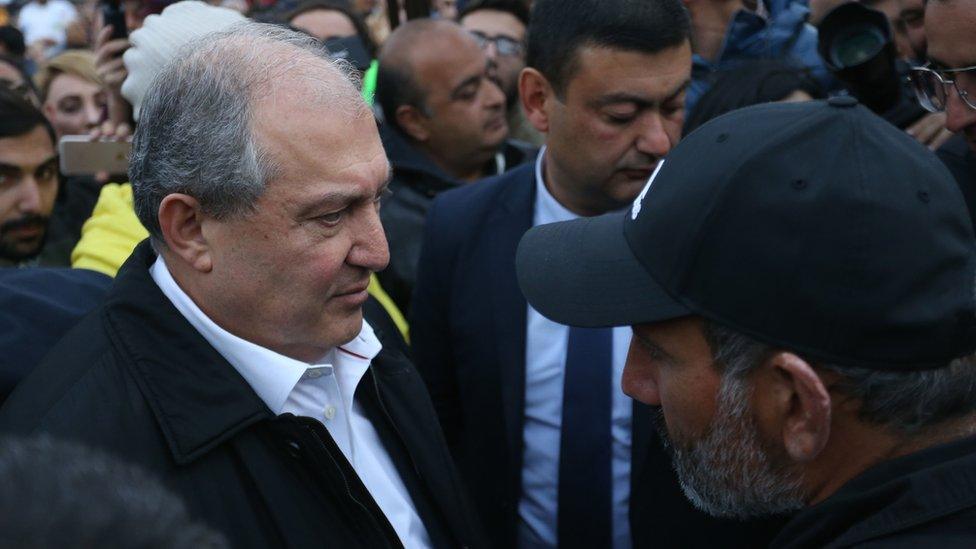
- Published7 December 2015
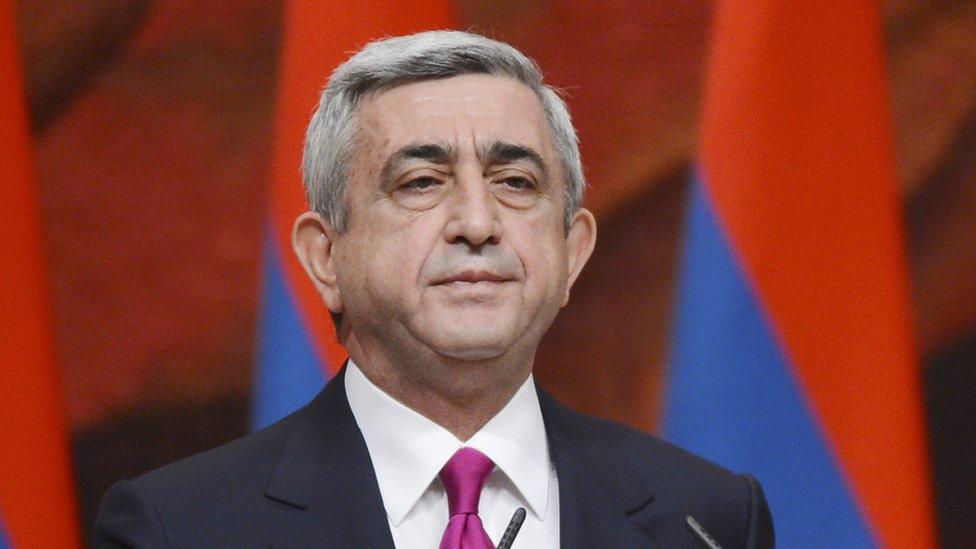
- Published19 February 2013
